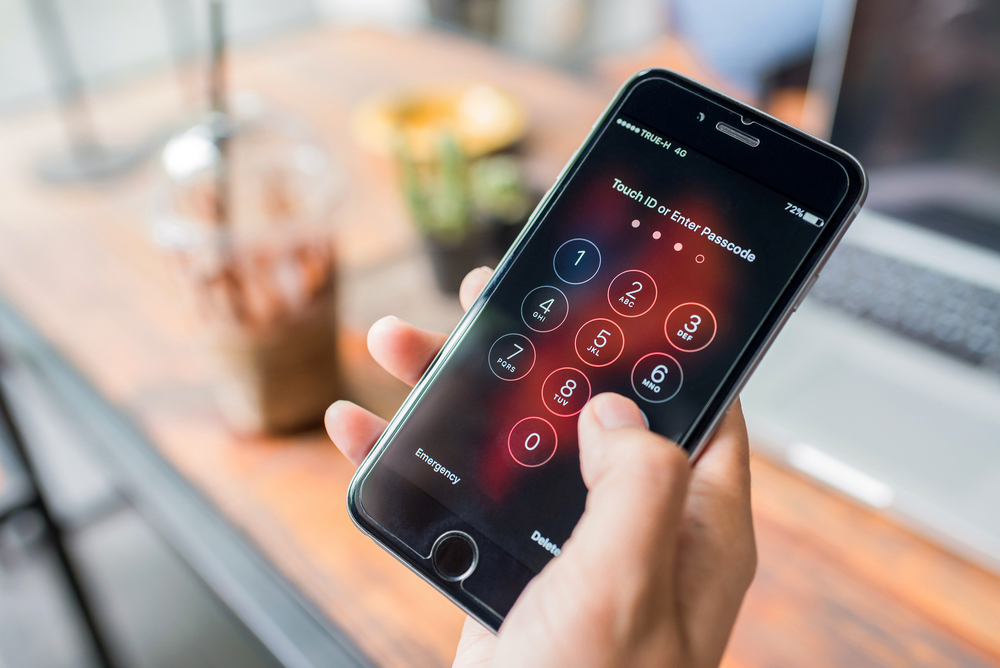You Can Now Go to Jail for Not Giving Your iPhone Passcode
One Florida man was jailed for providing the wrong phone passcode to police, while another got away with forgetting his own passcode.
Are phone passcodes protected by the Fifth Amendment? Florida judges seem to think not, but they do have different opinions on how to punish people who don't divulge them.
On a single day earlier this week, one defendant was sent to jail for allegedly refusing to reveal his passcode, while a second avoided the slammer — for now — after he claimed he forgot his own.

The first case involves Christopher Wheeler, 41, a Hollywood man suspected of child abuse. Broward County Circuit Court Judge Michael Rothschild sent Wheeler to the local lockup for 180 days on Tuesday (May 30), the Miami Herald reported. Rothschild found Wheeler guilty of contempt of court after the iPhone passcode that Wheeler gave authorities didn't work.
In the next county over, Miami-Dade Circuit Court Judge Charles Johnson gave Wesley Victor, 33, a pass for "not remembering" the passcode to his own BlackBerry, which police seized as evidence in the summer of 2016.
MORE: How a VPN Can Boost Your Security and Privacy
Victor is part of a slightly sensational case involving sex, blackmail and C-list celebrities. Police allege that he and his girlfriend Hencha Voigt, 29, star of the E! network show "WAGS Miami," stole sex videos from Miami Beach social-media celebrity and "influencer" YesJulz (24-year-old Julieanna Goddard) and were using the raunchy reels to try to extort $18,000 out of Goddard.
The sex tapes ended up online anyhow, but there's no evidence Victor or Voigt posted them.
Sign up to get the BEST of Tom's Guide direct to your inbox.
Get instant access to breaking news, the hottest reviews, great deals and helpful tips.
The authorities wanted to have a look at Victor's phone for evidence, but he claimed that — oops! — he just couldn't remember what the passcode might be. Judge Johnson accepted that explanation Tuesday, ruling that prosecutors couldn't prove Victor was lying, and declined to declare the defendant in contempt of court.
"The judge made the right call," Victor's lawyer told the Herald. "Many people, including myself, can’t remember passwords from a year ago."
Victor's lady friend Voigt will get her chance to try the same tactic in court next week. She did give the police a passcode to her iPhone, but it apparently didn't work.
That strategy clearly wasn't successful for Wheeler, who continued to insist that the passcode he gave police was correct even as Judge Rothschild sentenced him to six months in the slammer. Broward County authorities want to search Wheeler's iPhone for evidence that he did in fact hit and scratch his young daughter.
Many, but not all, judges across the U.S. have ruled that a secret password or passcode is personal information protected by the Fifth Amendment, which gives defendants the right to refuse to testify against themselves. (Meanwhile, U.S. Customs and Border Patrol agents insist that persons seeking to enter the United States can be compelled to unlock their smartphones and laptops.)
But a Florida appeals court ruled last year that a Sarasota defendant suspected of taking "upskirt" photos of random women in a shopping malls had to cough up his phone passcode. Prosecutors in the Wheeler and Victor/Voigt cases are citing that as precedent. The password issue will likely have to go to the U.S. Supreme Court before it's truly settled.
(The Apple-vs.-FBI showdown over iPhone passcodes in 2016 isn't directly relevant to this argument, as the suspect whose phone the FBI wanted Apple to unlock was dead and had no Fifth Amendment rights.)
However, there's no such ambiguity regarding fingerprints, which most courts have ruled should be considered physical evidence and hence not protected by the Fifth Amendment (or the Fourth Amendment that governs warrants, either).
So if a cop asks you to unlock your phone with your fingerprint, you can't legally refuse, just as you can't refuse to provide your fingerprints when you're being booked for arrest.
Paul Wagenseil is a senior editor at Tom's Guide focused on security and privacy. He has also been a dishwasher, fry cook, long-haul driver, code monkey and video editor. He's been rooting around in the information-security space for more than 15 years at FoxNews.com, SecurityNewsDaily, TechNewsDaily and Tom's Guide, has presented talks at the ShmooCon, DerbyCon and BSides Las Vegas hacker conferences, shown up in random TV news spots and even moderated a panel discussion at the CEDIA home-technology conference. You can follow his rants on Twitter at @snd_wagenseil.
-
rekabis The line between what a judge can force you to divulge and what they cannot boils down to between what you have and what you know, respectively. A key, which is something you have, can be forced from your possession. As such, a judge can force you to provide a fingerprint in order to unlock your phone. However, a safe combination is something you know, and therefore immune from being compelled. As such, a phone passphrase cannot be compelled because it is something you know, not possess.Reply
The distinction is that an object in your possession can be retrieved whether or not you remember that you have it or even know that you have it. It does not rely on your state of mind to be retrieved, and can be retrieved independently of your state of mind. Something that you know requires you to be in a fit state of mind in order for it to be retrieved; if there was no protection against an unfit state of mind, you could easily be jailed indefinitely for something you truly forgot about or did not even know about -- a horrifying travesty of justice that the abusive elements in our justice system could - and would - eagerly abuse.
Any judge who violates the balance of these two simple rules has no business being a judge. Full stop, no exceptions. Violation of this balance indicates gross incompetence and fundamental unfitness to be a judge.
As the old saying goes, better a guilty man walk free than an innocent man be incarcerated for even a single day.

